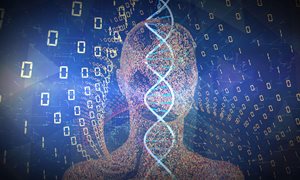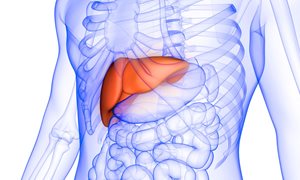
Geert Litjens from Radboud university medical center has received a European Research Council (ERC) Starting Grant. With this grant of 1.5 million euros he will be able to shape an ambitious project and extend his own research group. Geert Litjens is developing a completely new form of AI, the results of which are not only explainable (no black box!) but can also independently generate diagnosis and prognosis. AI is therefore changing from valued help to serious colleague doctor.
In medicine, AI has so far been used primarily to make the doctor's work easier. With AI, for example, tumors and metastases can be automatically detected and measured. And AI can do this better and faster, which is why it is now being used in hospitals as valued help for the doctor. The benefits? AI doesn't get tired, delivers consistent results and provides additional capacity when the number of available specialists is insufficient.
Making AI more inventive
The introduction of AI into pathology was possible as microscopic analysis was replaced by high-resolution digital imaging. Due to the availability of huge amounts of data, Artificial Intelligence (AI) and Machine Learning (ML) produced results that matched and sometimes surpassed the work of pathologists, although still limited to detecting and measuring tumors. Much more is possible when AI is applied more broadly and inventively, says Geert Litjens, affiliated with the Department of Pathology of the Radboudumc. He has set out those possibilities in the AIS-CaP project (Interpretable Artificial Intelligence across Scales for Next-Generation Cancer Prognostics), which has now been honored with an ERC Starting Grant.
Major consequences
Litjens: "AI should not only mimic what human experts can do, but try to deliver performance that goes much further. In the era of personalized medicine, we need to use computational technologies such as Machine Learning to improve the assessment systems designed by pathologists. If successful, we may discover, for example, new biomarkers that will have major implications for clinical oncology and cancer research. To take this major new step, a new methodological approach is essential."
Local and global
For that innovative approach, Litjens' research group has developed a new algorithm called SSGD (stochastic streaming gradient descent). This algorithm
allows full integration of local details and global context of whole slide images (WSI) into a single Machine Learning model. By enriching the algorithm with the latest techniques from computational language processing, it should become possible to create algorithms that are insightful and explainable. This will address the criticism that many algorithms currently act as a black box, providing no insight into the underlying considerations on which they are based.
AI provides prognosis
An important aspect of the new approach is that it directly predicts the patient's prognosis from the microscope images without the intervention of a human-made grading system. This enables AI to discover new biomarkers that cannot be quantified by humans and therefore greatly improves the diagnostics for patients. Litjens: "The technique should also make it possible to look not only at cancer-specific biomarkers, such as for prostate or breast cancer, but at cancer in general. In this way, we want this AIS-CaP project to take computational pathology, machine learning, oncology research and clinical care one essential step further."
-
Want to know more about these subjects? Click on the buttons below for more news.
Related news items

Promising research on Usher syndrome
29 March 2022 Erwin van Wijk, researcher at Hearing and Genes, wants to contribute to making Usher syndrome treatable. The results so far are better than he had dared to hope. go to page
Liver tumors irradiated from inside can be followed live from outside
17 February 2022 A Dutch research team from Radboud University Medical Center has visualized the injection of radioactive microspheres during treatment of a patient with liver tumors ‘live on screen’. go to page
Micro-Cosmos helps patient unwind during hospitalization
10 February 2022 Nijmegen-based Micro-Cosmos is a start-up that makes retractable hoods to speed up the recovery of hospitalized patients. go to page
LUMO Labs and Oost NL invest in Aiosyn Investment accelerates development of artificial intelligence platform to improve diagnostics
7 February 2022 Aiosyn, a spin-off from Radboudumc, has received an investment from LUMO Labs. Oost NL is a co-investor. go to page
Understanding fluctuation variation in cognitive abilities may provide insight into lifelong learning Rogier Kievit recieves ERC Starting Grant
13 January 2022 Rogier Kievit from Radboud university medical center has received a European Research Council (ERC) Starting Grant. go to page